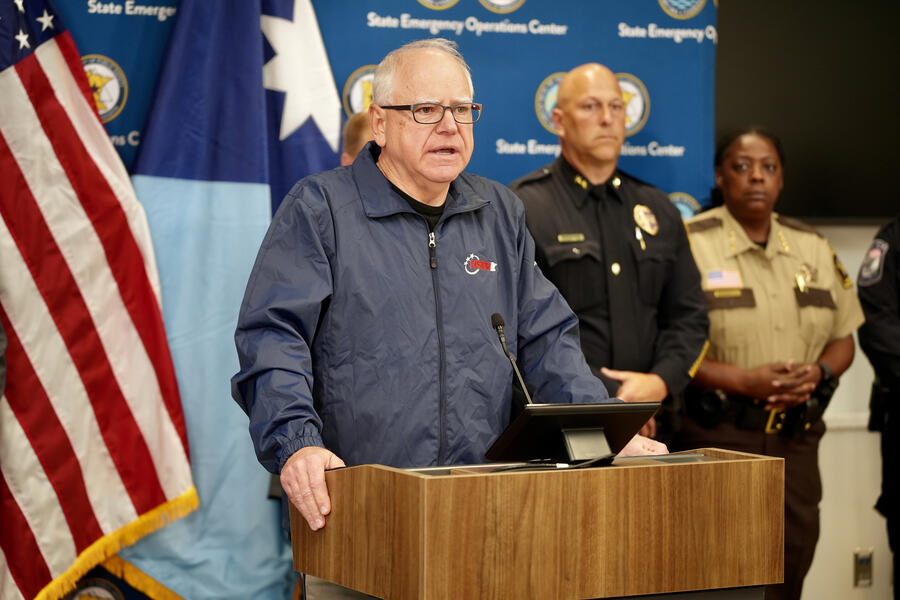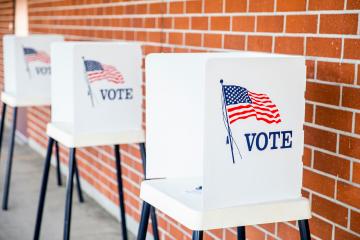- Name
- Hannah Robbins
- hlrobbins@jhu.edu
- Cell phone
- 667-232-9047
A gunman entered the homes of two Minnesota lawmakers on June 14, killing one representative and her spouse and wounding the second couple. The incidents—which coincided with a major military parade in Washington, D.C., and thousands of "No Kings" rallies across the nation—are the latest in a growing number of politically motivated, violent acts committed in the U.S.
In the wake of these tragedies, Lilliana Mason, SNF Agora Institute Professor of Political Science at Johns Hopkins University, discusses the current state of political violence in the U.S., what it means for our democracy, and what we can do push back against a growing culture of violent political rhetoric.
Mason studies partisan identities, attitudes toward political violence, and increasing political polarization. She authored Uncivil Agreement: How Politics Became Our Identity and co-wrote Radical American Partisanship: Mapping Violent Hostility, Its Causes, and the Consequences for Democracy.
How do the shootings in Minnesota reflect rising political violence in the United States?
They are vivid examples of the dangers of both violent political rhetoric and increasing partisan animosity, and the existential stakes of our politics. Early reporting shows that the shooter came from a conservative religious background and listened to media sources like InfoWars, which regularly demonize and dehumanize people on the left. That kind of rhetoric erodes our social norms and creates an environment where an unstable person might direct their violence in a political direction.
The number of threats against elected officials has been skyrocketing. We know this because the Capitol Police said that in 2024, they had more threats against members of Congress than ever before. The Bridging Divides Initiative out of Princeton has also been collecting data on violent threats against local government officials and conducting surveys about threats not reported to law enforcement. It's a scary environment, and an event like the one in Minnesota only makes the fear more real and palpable.
How does political violence erode the overall health of our democracy?
Political violence at its core is a rejection of democracy. If a person has used violence to achieve a political goal, then they've given up on the democratic process. Instead, they're trying to use force to affect government, or politics, or whatever it is that they're upset about.
Violence and the threat of violence changes the face of who is participating in politics. Violent threats are disproportionately aimed at women and people of color in public office. Most people in public office are there to serve their community, and they didn't think that they were going to have to endure death threats or worry for the safety of their children because of it. When faced with violent threats, a lot of people decide it's not worth it and quit.
On top of that, any act of violence is obviously meant to harm the target, but it also intimidates people who were not targeted in a way that makes them think twice about what they want to say and how they want to engage in politics. Political violence can discourage others from trying to run for office. Over time, the people remaining tend to be white men.
Political violence also makes Americans as a whole, less trusting of each other, of elected officials, and of the democratic process altogether. That kind of distrust is poison for democracy. Democracy requires us to have a certain level of faith in each other and a belief that we're all working toward a common goal.
Political violence comes in waves, which suggests that this "new normal" isn't necessarily permanent. How can we get back to a place of mutual respect, where opposite sides don't consider each other evil or mortal enemies?
That's the billion-dollar question. There are a few things that that are contributing to this environment, and one is the political leadership, both elected officials and political media. If the people who lead us are using violent or dehumanizing rhetoric, then it's a signal to their supporters that violent rhetoric is acceptable, and that violent action might be acceptable.
Also see
The simple solution is better, more responsible leadership. But it's difficult because our leaders are incentivized to use inflammatory language. Politicians get more attention, and media outlets know that if they have conflict-oriented language they can get more clicks and sell more ads. So we can point to something that would make it better, like using less inflammatory language, but that thing is never going to happen in the current situation.
One of our best options is to find ways to reduce partisan animosity. According to intergroup conflict theories, you would either have something that threatens everybody that would require us to work together to face it—though, you can make the argument that COVID was that threat and it ended up dividing us even more—or some new identity emerges that people can unify around and understand each other as human beings again. But so far, any new identities that have emerged have eventually become partisan.
I think ultimately the project is to bring back a common reality, and it's a much bigger problem than any one person or group can fully grapple with.
As individuals, we can participate in community discussion and activity. Political violence is illegal, but we also have strong norms around not committing political violence. Unfortunately, these norms are eroding, and regular people are more and more approving of violence. To counteract this, we can reaffirm that political violence is bad in our social spaces and in our communities. We can hold people to those norms and discourage them when they advocate for violence. We can be prepared to explain how dangerous it is, that it's not the way democracies function. We can reinforce nonviolent norms and not let those norms erode in the places where we each personally have a sphere of influence.
Posted in Voices+Opinion, Politics+Society
Tagged politics, snf agora institute, gun violence










